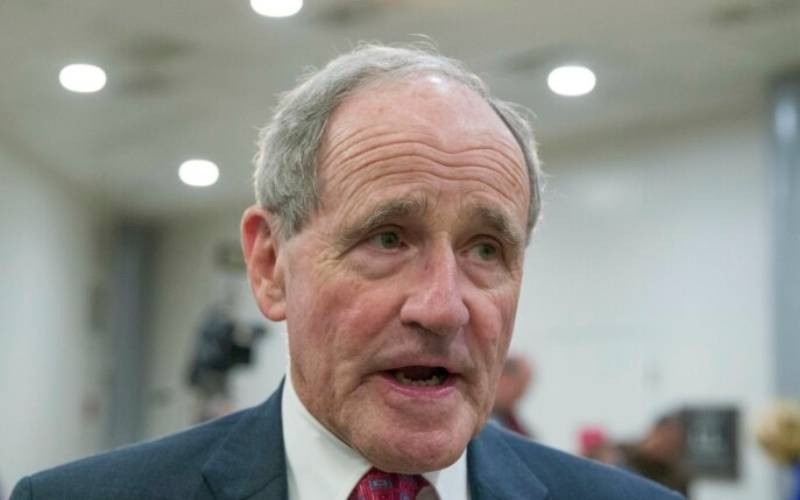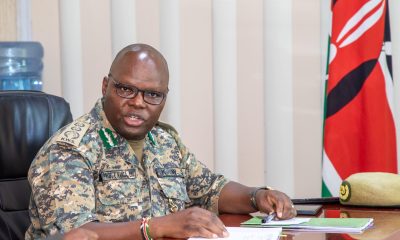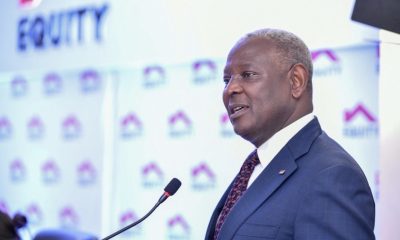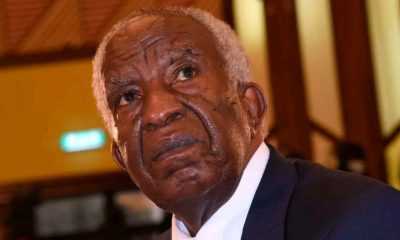Americas
Kenya Could Lose Crucial Military Support from the US Over Ties to China, US Senator Warns
President Ruto has consistently maintained that Kenya pursues a non-aligned foreign policy, stating the country is “neither facing east nor west” but “facing forward.”

Senator Jim Risch threatens to revoke Kenya’s Major Non-NATO Ally status following President Ruto’s deepening diplomatic engagement with Beijing
Kenya’s strategic military partnership with the United States faces unprecedented strain as a powerful US Senator threatens to revoke the country’s newly-acquired Major Non-NATO Ally status over its increasingly close relationship with China.
Senator Jim Risch, Chairman of the US Senate Foreign Relations Committee, issued the stark warning on Wednesday, expressing deep concern about Kenya’s “troubling” diplomatic ties with America’s greatest global competitor. The Idaho Republican’s comments signal a potential dramatic shift in US-Kenya relations that could strip Nairobi of crucial military advantages gained just last year.
The threat to Kenya’s military status
Kenya achieved a historic milestone in June 2024 when former President Joe Biden designated it as a Major Non-NATO Ally, making it the first sub-Saharan African nation to receive this prestigious status.
The designation opened doors to sophisticated US military technology, priority access to defense equipment, joint training exercises, and government loan guarantees for military purchases.
“Kenya plays a vital role in regional counterterrorism and stability. But as our newest Major Non-NATO Ally, Kenya’s ties with China are troubling,” Risch stated. “Widened diplomacy with America’s greatest competitor is not an alliance—it’s a risk for the US to assess.”
The senator’s warning carries significant weight given his influential position overseeing US foreign policy and his ability to shape legislative decisions affecting international partnerships.
Ruto’s Beijing speech sparks controversy
The diplomatic tension escalated following President William Ruto’s state visit to China in April 2025, where his remarks to Chinese leadership drew sharp criticism from Washington.
During the visit, Ruto declared that Kenya and China were not merely trade partners but “co-architects of a new world order—one that is fair, inclusive, and sustainable.”
The Kenyan president also criticized global financial institutions like the World Bank and International Monetary Fund, arguing they favor wealthy nations over developing countries.
He pointed to the IMF’s Special Drawing Rights allocation, where 64 percent of funds went to wealthy countries while the poorest nations received only 2.4 percent.
Senator Risch viewed these comments as crossing a diplomatic red line.
“Just last month, President Ruto declared that Kenya, a major non-NATO ally, and China are ‘co-architects of a new world order.’ That’s not just alignment to China; it’s allegiance,” he told the Senate Foreign Relations Committee.
The potential loss of Major Non-NATO Ally status would have far-reaching consequences for Kenya’s military capabilities and regional security operations. Currently, the designation allows Kenya to access advanced US military technology, participate in enhanced joint training programs, and receive priority delivery of military surplus equipment.
Kenya has been a crucial partner in US counterterrorism efforts in East Africa, particularly in operations against al-Shabaab in Somalia.
The country’s strategic position and military cooperation have made it a cornerstone of American security interests in the region.
The senator emphasized that US engagement with African nations must protect American interests while ensuring taxpayer value.
“We must stop building US policy in Africa around individual leaders and instead focus on strengthening institutions, expanding private sector ties, and empowering the region’s young and dynamic populations,” Risch argued.
Kenya’s balancing act
President Ruto has consistently maintained that Kenya pursues a non-aligned foreign policy, stating the country is “neither facing east nor west” but “facing forward.”
He has positioned Kenya as a potential bridge between global powers during an era of increasing geopolitical tensions.
China serves as Kenya’s largest trading partner and biggest source of imports, while Kenya ranks as China’s most significant trading partner in East Africa.
This economic reality complicates Kenya’s diplomatic positioning as tensions between the US and China continue to intensify.
The president has compared his Beijing visit to his historic Washington trip in 2024, arguing that Kenya can serve as a diplomatic bridge “between East and West, North and South” in today’s polarized global environment.
Senator Risch’s warnings extend beyond Kenya to encompass America’s broader Africa strategy under the Trump administration.
He called for a “clear-eyed realism” in assessing African partnerships and questioned whether engagement with certain governments justifies the costs.
The senator advocated for focusing US policy on strengthening democratic institutions rather than building relationships around individual leaders, suggesting a fundamental shift in how America approaches African diplomacy.
This reassessment comes as the US and Kenya are reportedly renewing discussions about a potential free trade agreement, which would be the first such comprehensive deal between America and a sub-Saharan African nation.
However, the diplomatic tensions over China ties could complicate these economic negotiations.
For Kenya, the stakes couldn’t be higher.
The Major Non-NATO Ally designation represents not just military advantages but also international prestige and strategic positioning in a competitive global landscape.
Losing this status would significantly diminish Kenya’s defense capabilities and could affect its role as a regional security anchor.
The controversy also highlights the increasingly difficult position facing many African nations as they navigate between competing global powers seeking influence on the continent.
As China expands its economic footprint through infrastructure investments and trade partnerships, African countries find themselves pressured to choose sides in the broader US-China strategic competition.
The coming weeks will likely determine whether diplomatic channels can resolve these tensions or if Kenya will face the stark choice between its economic partnerships with China and its military cooperation with the United States.
This developing story continues to unfold as both Kenyan and US officials have yet to respond publicly to Senator Risch’s latest warnings about the future of bilateral military cooperation.
Kenya Insights allows guest blogging, if you want to be published on Kenya’s most authoritative and accurate blog, have an expose, news TIPS, story angles, human interest stories, drop us an email on [email protected] or via Telegram
-

 Business1 week ago
Business1 week agoKakuzi Investors Face Massive Loss as Land Commission Drops Bombshell Order to Surrender Quarter of Productive Estate
-

 News1 day ago
News1 day agoKenyan Driver Hospitalized After Dubai Assault for Rejecting Gay Advances, Passport Seized as Authorities Remain Silent
-

 Investigations1 week ago
Investigations1 week agoINSIDER LEAK REVEALS ROT AT KWS TOP EXECUTIVES
-

 Investigations6 days ago
Investigations6 days agoCNN Reveals Massive Killings, Secret Graves In Tanzania and Coverup By the Govt
-

 Business2 days ago
Business2 days agoConstruction Of Stalled Yaya Center Block Resumes After More Than 3 Decades and The Concrete Story Behind It
-

 Business1 week ago
Business1 week agoBANKS BETRAYAL: How Equity Bank Allegedly Helped Thieves Loot Sh10 Million From Family’s Savings in Lightning Fast Court Scam
-

 News1 week ago
News1 week agoEXPOSED: How Tycoon Munga, State Officials, Chinese Firm Stalled A Sh3.9 Trillion Coal Treasure In Kitui
-

 Investigations3 days ago
Investigations3 days agoHow Somali Money From Minnesota Fraud Ended In Funding Nairobi Real Estate Boom, Al Shabaab Attracting Trump’s Wrath

















